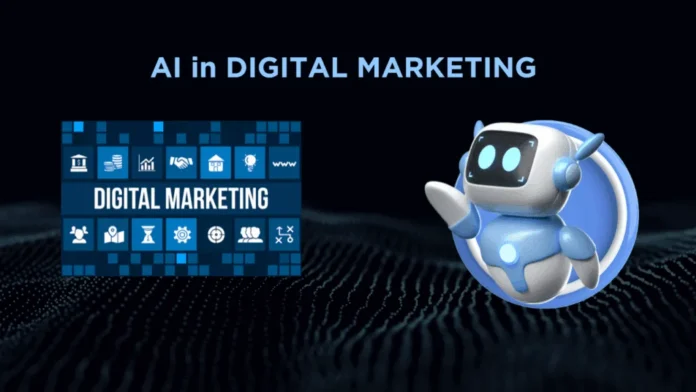Introduction: From Traditional Campaigns to Intelligent Engagement
The digital marketing world is evolving rapidly. In 2025, Artificial Intelligence is playing a critical role in how businesses connect with audiences. Instead of simply placing ads or chasing clicks, brands are building meaningful, personalized experiences powered by intelligent systems.
AI is not just a tool; it’s becoming the core engine behind how digital marketing strategies are planned, executed, and improved.
Chatbots Are Now a Core Part of Customer Experience
AI chatbots are far more advanced than they were just a few years ago. In today’s marketing landscape, they are more than automated responders. They are interactive assistants that:
- Communicate naturally with users
- Handle customer inquiries without delay
- Learn and adapt from previous conversations
This shift allows businesses to offer real-time support and engagement, improving customer satisfaction and operational efficiency.
Predicting Consumer Behavior with Data-Driven Insights
AI enables marketers to move beyond guesswork. By analyzing user behavior, AI tools can anticipate what a customer might want next. This predictive power helps businesses:
- Recommend products with better accuracy
- Identify customers likely to convert
- Plan campaigns based on real-time demand
Brands that utilize predictive marketing strategies are seeing better customer retention and higher sales conversions.
Voice Search Optimization Is Essential
As more users speak their queries instead of typing, optimizing for voice search has become crucial. Smart devices have made voice search a regular part of consumer behavior.
To adapt, marketers are focusing on:
- Conversational language in content
- FAQ-based formats for better visibility
- Fast-loading, mobile-optimized pages
Being prepared for voice queries gives brands a competitive advantage in search rankings and discoverability.
Content Creation Becomes Faster and Smarter
AI tools are significantly changing how content is created. With the help of language generation systems, marketers can:
- Produce articles and blogs at scale
- Generate product descriptions quickly
- Draft email campaigns with minimal effort
However, while AI provides structure and efficiency, human creativity is still essential for crafting brand-specific messages that connect emotionally.
Personalized Marketing Is Now Expected
Customers today expect brands to know their preferences and act accordingly. AI allows businesses to deliver highly personalized experiences such as:
- Dynamic product recommendations
- Individualized email messaging
- Personalized website interfaces
Personalization powered by AI improves engagement and builds trust, turning first-time visitors into repeat buyers.
Smarter Ad Management Through AI Automation
Digital advertising is becoming more efficient with AI-powered programmatic ad buying. This technology lets businesses:
- Automatically bid on ad placements
- Show tailored ads to the right users at the right time
- Adjust campaigns in real time based on performance data
The result is improved return on investment and reduced waste in advertising budgets.
Enhancing Video Marketing with AI
Video continues to be a top-performing content format. AI now supports marketers by:
- Editing videos using performance data
- Recommending optimal video lengths and headlines
- Tracking viewer interaction for better targeting
AI helps brands create video content that captures attention and improves viewer retention.
Visual and Voice Discovery Are Changing How Users Shop
AI-driven tools are changing how customers discover products and services. Instead of relying only on search bars, users can now:
- Upload images to find products using visual search
- Use voice commands to place orders or find answers
Businesses must ensure their platforms are optimized for these emerging modes of discovery to stay competitive.
Trust and Ethics in AI Marketing
As AI grows in power, so does the responsibility of using it ethically. Transparency and honesty are now essential parts of any marketing strategy.
Marketers should focus on:
- Disclosing when AI is used in communication
- Using customer data responsibly
- Avoiding misleading or manipulative automation
Customers value brands that respect privacy and prioritize ethical technology use.
Looking Ahead: The AI-Powered Future of Marketing
The future of digital marketing lies in further integration with AI. In the coming years, we can expect:
- AI-generated virtual influencers
- Real-time content personalization
- Augmented reality experiences powered by data
Staying ahead in this environment means embracing innovation while keeping human insight at the center of every campaign.
Conclusion: Smarter Marketing Starts with AI
AI is no longer a nice-to-have in marketing it’s a necessity. It allows businesses to move faster, make better decisions, and build stronger relationships with customers.




